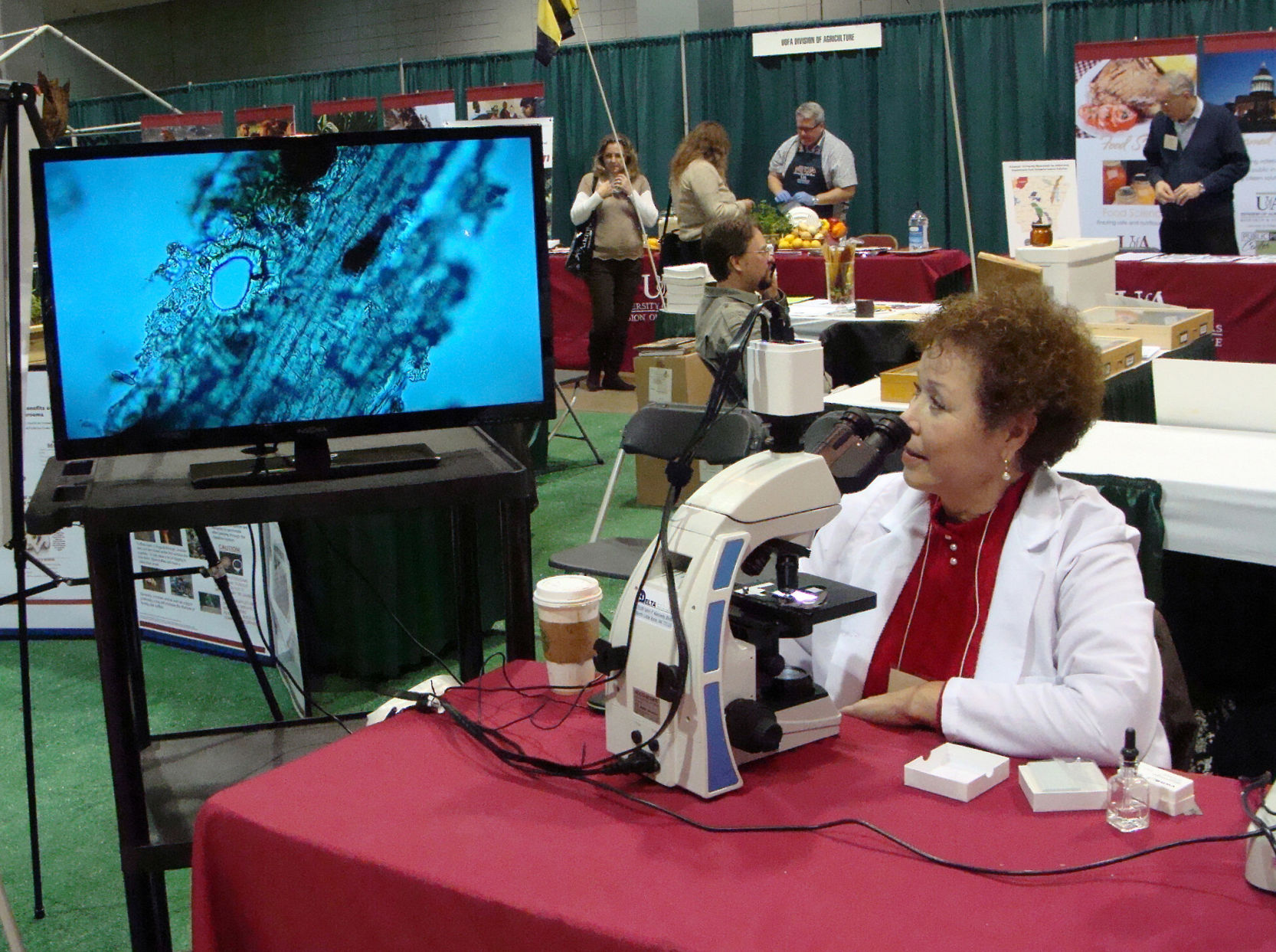From hydrangeas to soybeans, lab workers at the Arkansas Plant Health Clinic see it all and know just what’s wrong with your plant.
The Arkansas Plant Health Clinic, located in Fayetteville, diagnose plant health problems for Arkansas growers, homeowners and nurserymen. As a branch of the University of Arkansas System Division of Agriculture, the clinic is free to Arkansas residents.
“We receive plant disease samples from every county in the state and most of the samples come through the extension offices in each county,” said plant diagnostician Sherrie Smith. “If a county agent gets a sample and they can’t diagnose it, they fill out a form and ship the sample to our lab where we examine it, run tests and give a diagnosis and recommendation.”
With 75 counties and a typical 24-hour turnaround, it’s no surprise the lab stays pretty busy.
“We’re a very busy lab,” Smith said. “Our busy season starts at the beginning of March and it tapers off towards October and November. We get approximately 3,500 samples given the season. Right now, we’re at 3,400.”
With writing newsletters and attending field days, the Plant Health Clinic isn’t an ordinary lab.
“We have a portable diagnostic lab that we take to field days and flower and garden shows so people can bring their samples,” Smith said. “We also write weekly newsletters during the busy weeks.”
Although the newsletters are sent out to interested parties, they also serve as a resource for online research. Each newsletter is posted on the Cooperative Extension Service website and can be accessed at any time.
“There’s an A-Z search for our newsletters as well,” Smith said. “Say you want to know about spots n an apple tree. You can search apples and it will pull up all the newsletters that have apple articles.”
Garden trends
Arkansas is home to a wide variety of plants and it shows in the diverse samples that come through the clinic. However, Smith has noticed some trends.
“The types of samples we get have shifted dramatically in years. Now, about 44 percent of all samples are ornamental trees and shrubs,” she said. “The majority used to be field crops, but we have excellent agricultural agents out in the fields and ornamentals are a huge industry across the state.”
Although their samples range from soybeans to sweet peas, sometimes they get samples that are … different.
“Someone once sent a strange object in to be identified and it looked like a strange fungus found in a ditch,” Smith said. “Turns out, it was one of those rubber balls with the plastic spikes. It wasn’t a plant or a fungus, it was a foreign object.”
Whether it’s rubber balls, plants or even balls of dust, it’s probably gone through the Arkansas Plant Health Clinic.
The Plant Health Clinic is just one of the diagnostic services offered by the Division of Agriculture. Learn more at https://aaes.uark.edu/services.aspx For horticulture information, contact your county extension office, or visit www.uaex.edu.



